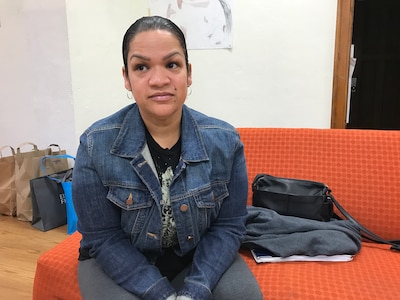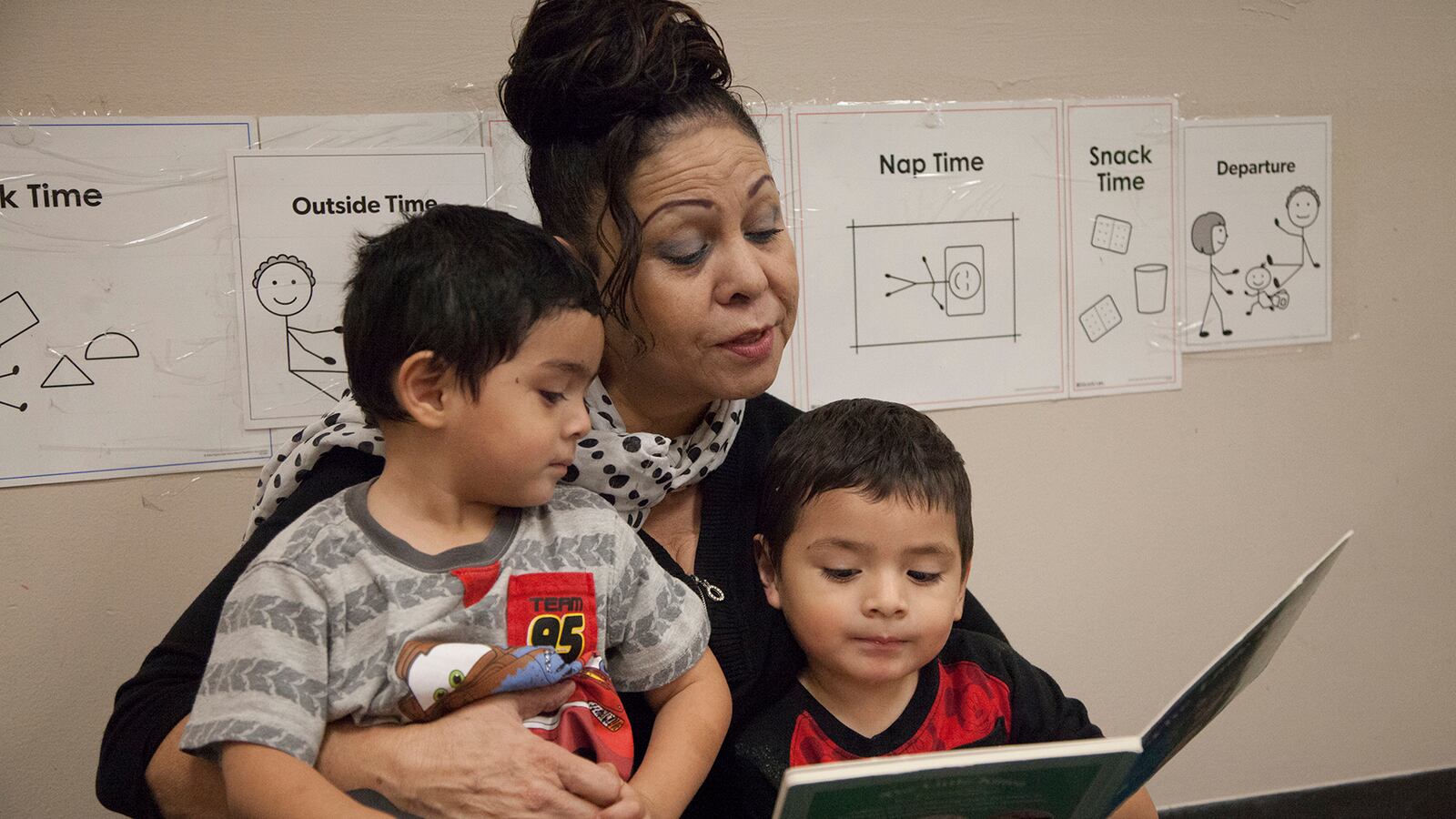Hundreds of Detroit’s most vulnerable families just received some alarming news.
The Head Start centers they rely on for free, federally funded preschool, healthy meals and other services will be undergoing significant change and could potentially close.
Affected are the 420 low-income Detroit children who attend 11 Head Start centers operated by Southwest Solutions, a prominent Detroit social service organization. The organization notified families last week that, because of severe financial and logistical challenges, it will cease operations at its Head Start centers at the end of December and lay off its 122 Head Start employees.
The news is the latest upheaval to a Head Start program that has struggled to regain its footing in Detroit after years of deterioration and neglect. And social service advocates say they are worried that the problems that beset Southwest Solutions — which has had shortfalls in its financing for three years, a spokesman said — could also affect other Head Start providers in the city.
“We know that the latest challenges are symptomatic of larger systemic challenges facing early education providers across the city and region,” said Katie Brisson, a vice president of the Community Foundation for Southeast Michigan, which coordinates the work for a group of 10 philanthropic organizations that have partnered together to support Head Start. “Such challenges as facility shortages, financing gaps, and uneven care quality, among others, must be addressed if we want our youngest children to excel in elementary school and beyond.”
All of the Southwest Solutions Head Start programs will be transferred to other operators who could rehire existing staff, but their ability to smoothly pick up the added children and find classroom space for them is uncertain. That is adding stress to the lives of families already in crisis.
“They’re the only ones who’ve been able to help me,” said Rosanna Ramos, 40, a mother of three who said her children’s Head Start program supported her through a painful divorce.

The staff at the Head Start, which operates inside the Escuela Avancemos charter school near Ramos’ southwest Detroit home, was there for her when she lost her job, when fire damaged her home, when her water was shut off, she said. Teachers got help for her son, Eliseo, now 5, when he developed behavioral issues and a stutter in the wake of a traumatic incident, she said. (He recently graduated from the program and started kindergarten.) A beloved teacher — Mr. Jason — worked with Ramos’ daughter, Elisabet, now 4, when she stopped taking naps as a toddler “because she felt vulnerable,” Ramos said.
“They’ve been like a second family to us,” she said. “We’ve had so many hardships and the school has supported us with the resources we need, with counseling and all-around understanding.”
Even if the program stays open, the thought that staff might change is highly distressing to her, she said. “My children need the consistency of the same school to reiterate that we’re safe now.”
Another parent, Evangelina De La Fuente, burst into tears at the thought that the Head Start her 3-year-old twin grandsons attend could close or change.
The school, inside a Salvation Army women’s shelter near Corktown, was an oasis for her family after her daughter, Christine, died shortly after giving birth and left De La Fuente to care for infant twins.
“We’re concerned and worried about what’s going to happen,” said De La Fuente, 55. “My health is not that great and this program is a lot of help for me … It’s become like a second home.”
De La Fuente says she’s been told that her grandsons, Randy and Prince, will likely still have a spot in a Head Start program but she worries about how they’ll cope with possible change.
“Our babies are used to their teachers,” she said. “They not only get an education here, they get attention, they get love, they get protection. For us, it’s hard to go back and trust another staff … We are very comfortable with our social worker, our director, our instructors. The babies are secure and they’re happy and they’re well fed and they’re well cared for. It’s scary to think it could change.”
Gabriela Alcazar, a family services worker at the Salvation Army Head Start, comforted De La Fuente as she cried while talking to a reporter.
“Continuity of care is one of the biggest tenets in social and emotional development,” Alcazar said. “We talk about intellectual and academic rigor but … [quality early childhood education] is teaching how to regulate your emotions and being able to participate in a classroom setting. That’s how you prepare children for school. That’s why continuity of care is so important and that’s basically being swept away from all of these children.”
Alcazar is union representative for the Head Start workers who are being laid off. She expects that most of the affected workers will land other jobs given the teacher shortage that affects many preschools in Detroit, but she notes that Southwest Solutions employes are in a union, which is not necessarily the case for other Head Start providers. That means that even if they are offered a spot at their current schools, they could face reductions to wages and benefits.
The decision to walk away from Head Start wasn’t easy for Southwest Solutions, said spokesman Steve Palackdharry.
“I cannot tell you what a painful decision this is for our organization” he said. “The mission of Southwest Solutions has to do with trying to put low-income families on the path to success and when you think about trying to break the intergenerational cycle of poverty, early childhood education has to be a part of that process.”
But a complicated federal funding system for Head Start that requires providers to match some of the funds and the challenge of finding and renovating classroom space that meets state and federal regulations made it difficult for Southwest Solutions to continue operating the program, he said.
“We were suffering significant losses for three years,” Palackdharry said. “We have more than 70 different programs … We’re the lead agency on homelessness, mental health, the leading provider of affordable housing in Southwest Detroit … and if you’re bleeding money in one particular area, there are concerns in the organization that it’s starting to affect the viability of the many other programs.”
Southwest Solutions has been operating Head Start centers since 2014 when it was part of a group of local nonprofits that collectively took over management of the program. The city of Detroit had administered Head Start for years but the federal government under former President Obama put the Detroit program out to bid to trigger a fresh start after years of mismanagement and neglect.
Since taking over the program, the new providers have struggled to find enough classrooms that can be affordably brought up to code. That hurdle, along with the difficulty of finding enough teachers, has left hundreds of Head Start seats unfilled in a city where thousands of needy children and their families could benefit from the highly regarded program.
Getting classrooms open was one of the major challenges facing Southwest Solutions, Palackdharry said.
The agency was approved to enroll up to 606 babies, toddlers and preschoolers but currently has only 420 kids in its 11 sites, Palackdharry said. That means the agency has spent money trying to get classrooms licensed but hasn’t been able to collect funds for those classrooms since children haven’t yet been able to enroll.
The organization has also spent money on classrooms inside public schools only to lose them when the schools decided they needed the rooms back. This year, Southwest Solutions lost seven classrooms in Detroit Public Schools Community District schools. That includes three at Durfee Elementary-Middle School that were lost when the school’s building was sold to a community group, Palackdharry said.
Starfish Family Services, a social service agency that leads the collaborative of Detroit Head Start providers, is working to find new operators to take over the Southwest Solutions centers, said Ann Kalass, the chief executive officer at Starfish but the process is complicated. New providers will have to negotiate leases for classrooms, hire staff and consider the impact on their existing programs.
“Our goal is to have minimal disruption for the families,” she said. “At this point, I’m not comfortable saying there will be no disruption but we want families to know that … we’ve got all of our resources deployed in making sure that the sites are stable and that everything is there that families should expect.”
Kalass acknowledged that the challenges that hobbled Southwest Solutions could very well affect other providers but she said she hopes this setback will encourage government and community leaders to create better support systems for the program.
“This is really a reminder to all of us,” Kalass said. “There’s an opportunity in front of us to develop a plan that puts all of our best thinking on the table to have a strong sustainable system for kids.”
Head Start, “is an amazing program,” Kalass said. “We see really promising outcomes for kids when we offer them quality programs but it’s complicated work so we need to have all systems aimed in the right direction for kids.”
Local philanthropic organizations have already come together to help Head Start providers weather the changes in recent years, but the millions of dollars in support from the 10-foundation Head Start Innovation Fund wasn’t enough to keep Southwest Solutions in the program.
Brisson, the vice president of the Community Foundation for Southeast Michigan, said there’s a lot of work left to do.
“Participants in the Innovation Fund are working together, and each in their own unique ways, to build short-term and long-term solutions to ensure families continue to receive the early childhood education that they need and deserve,” she said.
This story was edited on November 8, 2017 to remove statements by a parent that were not fully verified.

